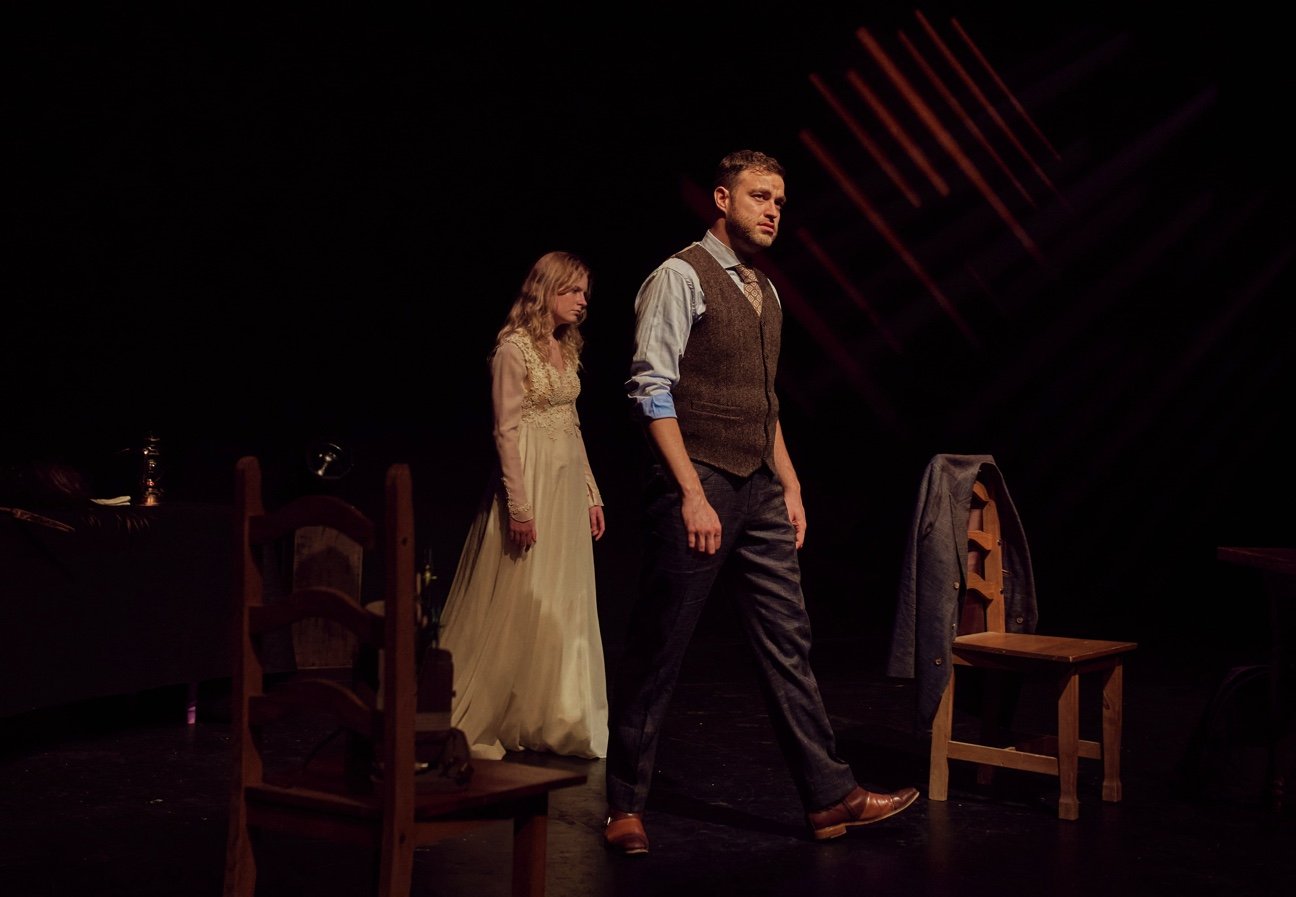Originally published on Fort Worth Magazine.
Amphibian Stage brings a popular Halloween classic to the stage with the adaptation of ‘The Legend of Sleepy Hollow.’
Something is bubbling and brewing at Amphibian Stage as it brings to life an adaptation of Washington Irving’s The Legend of Sleepy Hollow this fall, the perfect complement for the spooky season.
The one-act play “The Hollow,” adapted by and starring John Rapson and directed by Jeremy Landon Hays, both Broadway veterans, starts Oct. 12 and runs through Nov. 6.
The world premiere of “The Hollow” at Amphibian Stage — it is bound for off-Broadway in New York City — will showcase a narrator’s spin on Irving’s ghostly tale. This adaptation is just as chilling as the man behind the pen, but we’re told that Rapson’s rendition brings out the same beloved traditional text, but with a peculiar interpretation for contemporary audiences.
“The Hollow offers creative insight into two brilliant men — Irving and Rapson — centuries apart, and shows Irving’s work still has relevance today.” – Kathleen Culebro
“Amphibian Stage is honored to welcome this outstanding talent to Fort Worth for the second world premiere this season,” Amphibian Stage founder and artistic director, Kathleen Culebro, says. “The Hollow offers creative insight into two brilliant men — Irving and Rapson — centuries apart, and shows Irving’s work still has relevance today. We’re thrilled to invite North Texas audiences to experience this humorous and frightful production.”
Hays has developed work for Broadway and appears in television, film, and stage performances. The duo of Rapson and Hays propels Irving’s work into the 21st century with theatrical illusions that emphasizes the storytelling.
“Viewers will be blown away by this reimagining of Irving’s stories,” Culebro shares. “Irving was one of the country’s first creative voices, and it’s fitting that today’s leading visionaries would choose to tell his stories. It’s a rare gift to see fiction come full circle from early 19th-century literature to the 21st-century stage.”




